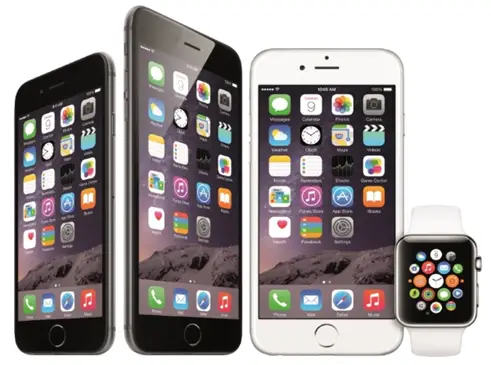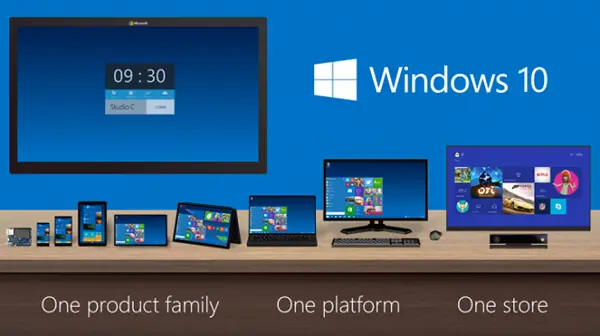iOS – Simple, but efficient
iPhone is often an object of envy. It is “The Smartphone” which everyone recognizes and which commands a second look for both the phone and proud owner. Whether you like it or not, among common masses, that is the stature it enjoys. Every year, i see more than a few people announcing their iPhone purchase as victories on social network and that in itself says a lot.
But you don’t have to spend a ton of money to buy one. With a recent visit to the nearby brick and mortar store, i saw used iPhones in pristine condition selling from 7,000 INR (iPhone 4s) onwards. These weren’t shoddy broken devices, as i got to know later, but capable of delivering good iOS experience. So, if you don’t have a bucket load of cash, you can still be a part of iOS ecosystem and enjoy benefits it entail. Steve Jobs was never in favor of relinquishing control to consumers, right from the Apple II days and iPhone dwells on the same philosophy. It is more of a controlled eco system, where Apple decides what way consumers will enjoy their phones. This isn’t a bad thing at all and works well for most people, especially since Apple is doing a stellar job.
Recommended: Top 10 Most Useful iOS 8 Features, Tips and Highlights
You can’t install apps from “other sources”, Apps are restricted in what they can do, but on the plus side, that also means you don’t end up with malicious software or anything that unjustly hogs resources and slows your phone down. Jailbreak is an option, but it has consequences and isn’t as simple as rooting most other Android phones. Since everyone gets the latest software updates, jailbreak isn’t missed much by general consumers either. Like other Apple products, iOS aims to offer a meticulously designed standard experience to all users, where people don’t have to bear the anxiety of fiddling with every aspect to make it more palatable or suited to their taste. The software is very well integrated with the hardware which is why iPhones are blazing fast even with dual core chips and 1 GB RAM. iOS aims at delivering a complete experience.
Android – Freedom, But at a price
Android is more suited to users who like to fiddle with their device and bypass OEM restrictions. Depending on what way you look at it, it is pure gold or an utter mess. Google provides Android for free, but that isn’t the reason why it is the most popular Smartphone OS on the planet. It is actually quite good and is getting better with each upgrade.
Across all budgets you get to choose from several kinds of devices. All OEMs dress up Android in their own style, but if you are a purist, you can always opt for pure Android on Nexus devices and a few others from Motorola. With freedom comes responsibility. Not only consumers, but OEMs and App developers often misuse this freedom, by not sticking to Google set guidelines. The inclusion- exclusion of SD card and storage management has been a big pain. Some manufacturers have storage partitioned as internal and phone storage, others have a unified block, some allow you to transfer apps to SD card, and others don’t.
Recommended: Micromax Yureka Offers Full Support for Developers and Power Users
Only 12 percent of users get to use and reap benefits from latest Android Lollipop, even when Android M is in sight, but again, many Android users don’t care what version they are running.
Recommended: What is Difference between Internal, Phone and External Storage? Android Storage Explained
The rewards of Android freedom are seen from powerful Apps like Tasker and Pushbullet or from instances like WhatsApp launching desktop client only for Android users. Google’s own well woven ecosystem of apps and services is very useful and works best on Android. These Android Advantages and Freedom are highly addictive, and once tasted you will find them difficult to renounce. There is huge community support and even brands like Yu and Xiaomi which don’t prohibit rooting and other experimentation. Android allows everyone to bend rules and customize and since there are so many option, you need to know the basics and more importantly, what you ‘Need’ before you pick one from a bunch of Android phones.
Windows Phone – Brand on a budget
Microsoft is now focusing on Midrange and budget market for its Windows Phone OS and that makes sense. Brand is perhaps the most important entity for most consumers and Microsoft scores on that front, especially in markets like India.
Like Google, Windows Phone is now free. In fact, since all Android OEMs have to pay patent royalties to Microsoft, it costs even less than Android, but the OS still failed to gain a significant chunk of market share. We saw some domestic branded Windows OS phones last year as part of Qualcomm Reference design program, but they weren’t whole heartedly embraced, at least not in India. Since Microsoft already has a well-defined portfolio in budget segment, small players don’t stand much chance. Lumia devices aren’t any inferior. Windows Phone OS is more resource efficient than Android. 1 GB RAM phones run without any major lag even in the long run. Lumia devices are also well known for superior camera hardware and software, and vibrant designs. A Smartphone like Lumia 640 XL which is now selling for under 15k is a very good alternative for those who consider Android a mess. With Windows 10, Microsoft will leverage its biggest advantage and will bring all Windows running smartphone closer to ubiquitous Desktop operating system with options like universal apps.
Recommended: Windows 10 Phones will be able to turn into Desktop
Although all basic apps are now available for this platform, but yes it is true that developers give third preference to this OS. Beside, in spite of workarounds, you can’t enjoy Google services like Inbox, Gmail Chrome OS or YouTube as efficiently, which is one of the major drawbacks.
Recommended: 10 Reasons Windows Phone Is As Good and Some Times Better Than Android Phone
If Android openness doesn’t mean much to you, if a brand new iPhone isn’t in your budget and if you aren’t overly attached to Google services, you won’t regret buying a Windows 10 ready phone today.
Conclusion
So these are the three major OS platforms and none of these can be termed inferior to other. You should make a well informed choice keeping in mind limitations and strengths of each platform and understanding what they actually mean for you. There are several cross platform apps and cloud options available, so it won’t be difficult switching or sharing stuff between different platforms. What your friend or family own is important factor, but shouldn’t be a limitation.

